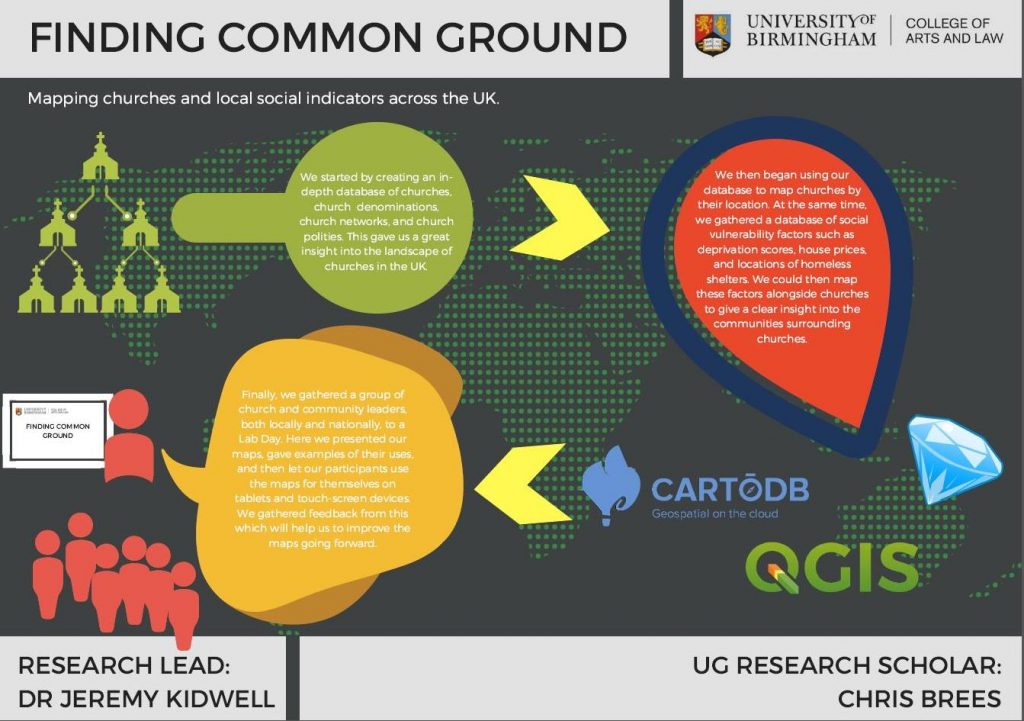Today, we live in a society of constant change. The ebbs and flows of culture, demographics, risks, and challenges are often hard to keep up with. We see influxes and effluxes of all kinds of different people into and out of our city, and with the privatisation of many formerly state-run services, we see a dispersion of people in care, in recovery, needing shelter, and seeking help, throughout Birmingham and the West Midlands. How can the church keep up with this constantly changing environment, and how can mapping these changes help the church to engage more effectively in the community?
Over the summer, I have been involved in the Finding Common Ground project, working alongside Dr Kidwell. The research aims to tackle the questions posed in the previous paragraph head-on by producing an open-source, comprehensive database of churches. This database can be mapped on top of various social and environmental vulnerability factors such as locations of homeless shelters, flood risk areas, and deprivation scores, allowing the user to see their local community under the spectral spotlights of these factors. We see these maps as a resource which can be used for a range of church projects, from plotting church-planting into unchurched and deprived areas, to informing community outreach projects, or environmental campaigns.
But why does mapping matter? I believe that in a city of such change as ours, it is vital to keep our collective finger on the pulse of our local society. Seeing how communities are changing, and being aware of what is going on around us can be hard, but by mapping these changes we can have a more rounded, and extensive view of the needs and wants of the people around us, all at the touch of a button.
I’ve loved being a part of this research team, getting to see the ins and outs of everyday research life has been eye-opening and wholly rewarding – even during the mundane days of data collection! The new skills I have learnt, from web-scraping data, to using different demographic mapping software packages, and learning how to effectively communicate research with potential stakeholders, have all been invaluable, and I have already started using these skills in other walks of life.
I’m really excited to see how this research will continue to grow in the future, but most of all I cannot wait to find out how this might be used to provide opportunities and help for communities in need, allowing churches to understand and meet the needs of those around them.
Chris Brees, BA Politics, Religion and Philosophy

